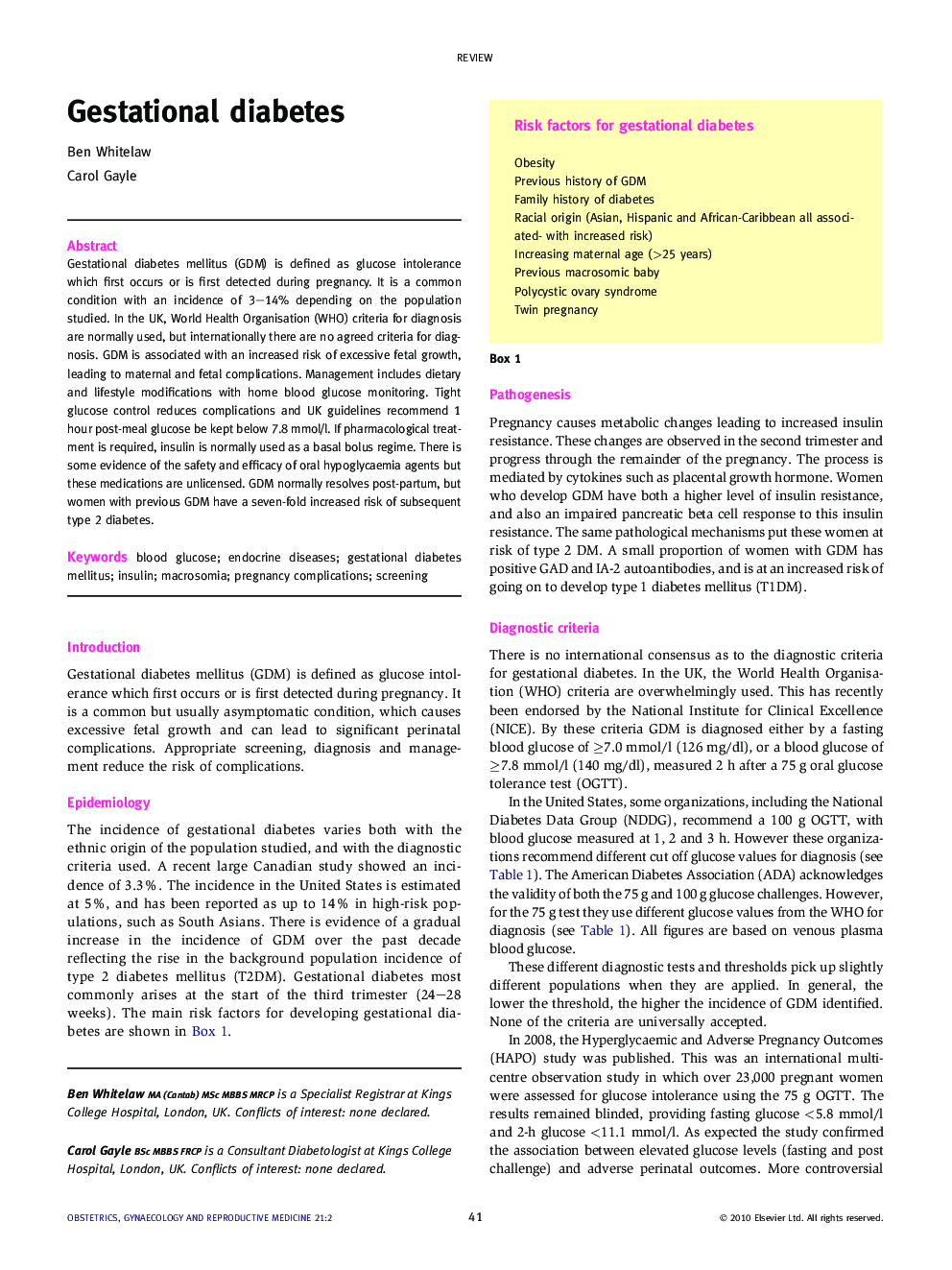| Article ID | Journal | Published Year | Pages | File Type |
|---|---|---|---|---|
| 3967213 | Obstetrics, Gynaecology & Reproductive Medicine | 2011 | 6 Pages |
Gestational diabetes mellitus (GDM) is defined as glucose intolerance which first occurs or is first detected during pregnancy. It is a common condition with an incidence of 3–14% depending on the population studied. In the UK, World Health Organisation (WHO) criteria for diagnosis are normally used, but internationally there are no agreed criteria for diagnosis. GDM is associated with an increased risk of excessive fetal growth, leading to maternal and fetal complications. Management includes dietary and lifestyle modifications with home blood glucose monitoring. Tight glucose control reduces complications and UK guidelines recommend 1 hour post-meal glucose be kept below 7.8 mmol/l. If pharmacological treatment is required, insulin is normally used as a basal bolus regime. There is some evidence of the safety and efficacy of oral hypoglycaemia agents but these medications are unlicensed. GDM normally resolves post-partum, but women with previous GDM have a seven-fold increased risk of subsequent type 2 diabetes.
